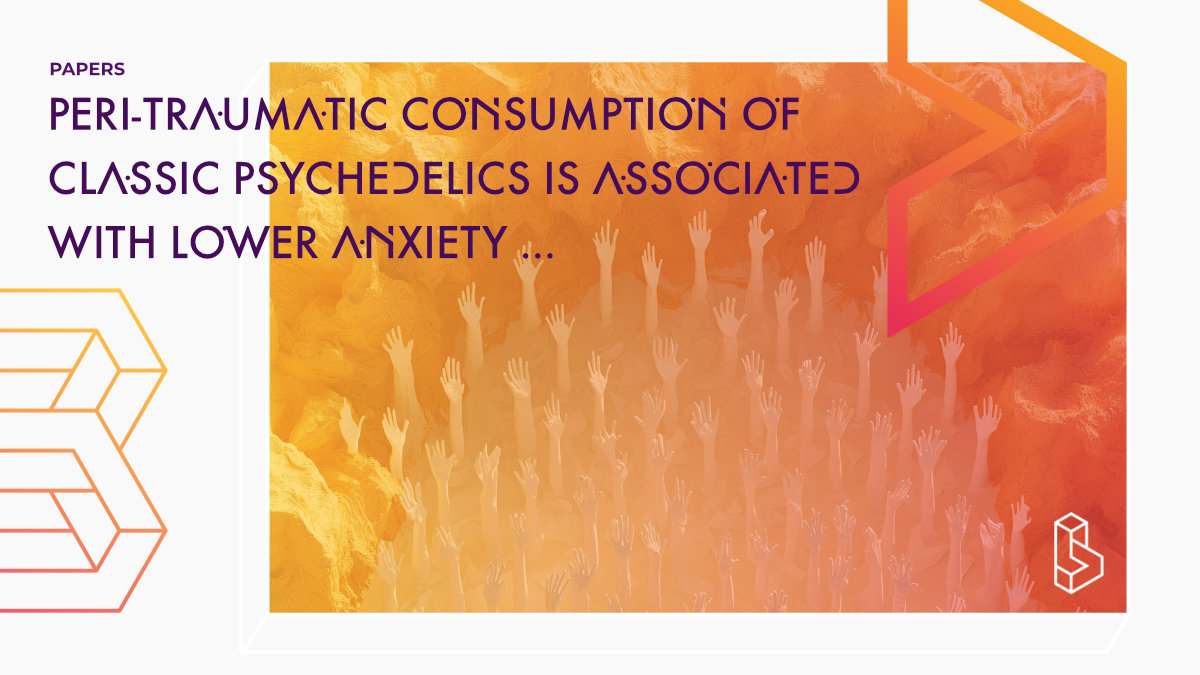This observational study (n=343) of terrorist attack survivors found that those under the influence of classic psychedelics during the traumatic event reported lower anxiety and post-traumatic symptoms compared to MDMA users or non-users, particularly when psychedelics were taken alone.
Abstract of Peri-traumatic consumption of classic psychedelics is associated with lower anxiety and post-traumatic responses 3 weeks after exposure
“Emerging evidence indicates the therapeutic potential of psychedelic compounds for post-traumatic stress, yet the mechanisms mediating their effects remain unclear. Delineating the effect of psychedelics on traumatic memory formation could shed light on target therapeutic mechanisms. Here, we report on 343 adult survivors of a single, large-scale terrorist attack taking place during a festival in which different psychedelic compounds were consumed, in whom levels of anxiety and post-traumatic symptoms were assessed 3 weeks following the attack. Findings indicated that those who were under the influence of classic psychedelics during the attack reported significantly lower levels of anxiety and post-traumatic responses compared to those who were under the influence of 3,4-methylenedioxymethamphetamine and those who consumed no psychedelics. Furthermore, the protective effects of classic psychedelics for post-traumatic responses manifested more strongly among participants who did not consume additional recreational substances alongside psychedelics. These findings suggest that pharmacologic targets of classic psychedelics may modulate the formation of enduring trauma memories and confer a protective effect against the development of post-traumatic stress and anxiety responses.”
Authors: Einat Karp Barnir, Zohar Rubinstein, Rany Abend, Shaul Lev-Ran, Lia Naor & Mario Mikulincer
Summary of Peri-traumatic consumption of classic psychedelics is associated with lower anxiety and post-traumatic responses 3 weeks after exposure
Emerging evidence highlights the therapeutic potential of psychedelic compounds for post‑traumatic stress disorder (PTSD). Classic psychedelics such as LSD and psilocybin and empathogenic compounds like MDMA interact with distinct neurotransmitter and receptor systems, which may differentially influence the encoding and consolidation of traumatic memories. Karp Barnir and colleagues note that while animal and human experimental models link these pharmacological differences to fear‑memory formation, real‑life data following acute trauma remain scarce.
On 7 October 2023, a large‑scale terrorist attack at a music festival in southern Israel exposed approximately 3,500 attendees to life‑threatening violence. Of the survivors, a substantial subset had consumed classic psychedelics or MDMA in the hours preceding the assault. Three weeks post‑attack, the authors surveyed 343 adult survivors to assess whether peri‑traumatic consumption of these compounds related to subsequent anxiety and post‑traumatic stress symptoms. This naturalistic setting provides a unique opportunity to infer how different psychedelic‑induced neurobiological states at the moment of trauma may modulate enduring emotional and stress responses.

